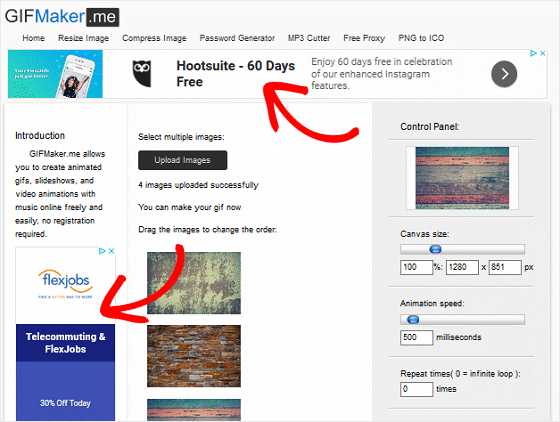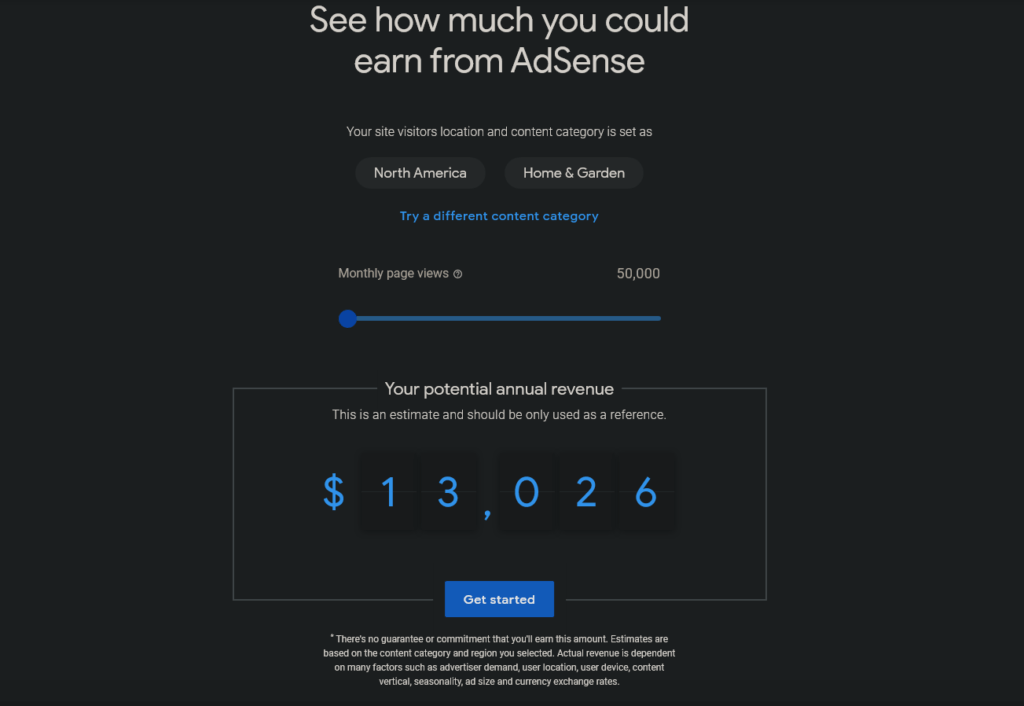Should My HVAC Website Allow Advertising?
By Rein Shope on Wednesday, March 24, 2021Allowing website ads can supplement your income, but it also diminishes the user experience.
In modern times, you cannot run a successful HVAC business without having an HVAC website. Managing a site comes with its own challenges. You have to pay for hosting, your domain name, security certificates, and maybe even designers or contractors to take care of all of the upkeep and maintenance. It all adds up quickly!
One way to make a website pay for itself? Monetize it with advertising. This doesn’t make sense for everyone, but it can offset some expenses and even give you a whole new revenue stream. Let’s go through some of the most important things to consider when deciding if you’d like to monetize your HVAC site as an ad publisher.
Content
Content is the most important aspect of monetizing your website with an ad company such as Google Adsense. Many advertising solutions use an automated system in order to review your pages and determine if they’re suitable to sell ad-space on. The more content you have on your site, the better it will work for advertising.
Ad platforms such as Google Adsense or Media.net place high value on content rich websites such as blogs and news sites. This means that your HVAC site will require a lot of pages that host large sections of text-based content if you want to sell ad space on it. To meet this requirement, you should host a blog on your website that you post HVAC-related news and information to regularly.
As a bonus, creating more content on your site can help your SEO (Search Engine Optimization), leading to more visitors and more income from advertising!
If your site isn’t already rich with the content that these companies are looking for, get a good amount of articles published before applying to one of these companies. This will maximize the chances of approval.
The content on the website should focus on promoting the business and providing helpful information for customers, such as product descriptions and installation guides.
Ad Space
Of course, we’re getting ahead of ourselves. Before running ads on your website, ask yourself if you’re comfortable with showing the ads to begin with. Some consider ads an eyesore to avoid at all costs, while others believe they’re completely acceptable in order to offset the costs of running the site.

A website showing Adsense ads in two separate locations
Additionally, ask yourself, “What’s the point of my website?” Most likely, your site exists to inform users about your HVAC services and convince them to hire your company for their HVAC needs. Ads will get in the way of that. Sure, allowing ads can supplement your income (more on that later), but they create a negative user experience and actively ask visitors to move from your website to somewhere else on the internet. Plus, the ad revenue you’ll get likely pales in comparison to the revenue you’d get from someone hiring you to perform HVAC work.
With this in mind, it may make more sense to build your website with the idea of converting traffic into HVAC customers, not selling traffic to third parties. (If you see yourself more as a content company than an HVAC company, that changes the equation.)
Extra Revenue
Advertising can be a great way to bring in extra revenue for your website. It can also help you to attract new customers and build brand awareness. However, selling ad space can be a lot of work. You’ll need to find advertisers, negotiate rates, and manage the ads.
If you decide to sell ad space on your website, there are a few things you should keep in mind. First, make sure that your website is well-designed and easy to use. You’ll also need to have good traffic numbers; otherwise, advertisers won’t be interested in buying space on your site.
Finally, set realistic rates for your advertising space. Don’t charge too much or too little; find a price that’s fair for both you and your advertisers.
Earnings
Money! Here’s what everyone wants to know about. How much can you make from ads? This is a tricky subject, as ad revenue can vary greatly depending on your views, what ads happen to populate on your site, and what type of ads get published.

A revenue estimate for a Home & Garden site in North America
Luckily, Google has a revenue calculator that you can use in order to get a sense of how much you could earn depending on your region and industry, based on your website traffic. Above you’ll find an example from their calculator for a website based out of North America in the Home & Garden category. If you can net 50,000 views per month, you can get up to an estimated $13,026 a month.
The More Traffic, the Better!
Advertising can be a major source of income for websites. In general, the more traffic a website receives, the more money it can make from advertisements. If you have high traffic levels, advertisers will be willing to pay top dollar for placement on your site. This can help you offset the costs of running your HVAC website and potentially even turn a profit.
In addition, ads can be a good way to promote HVAC products and services that you endorse. If you carefully select the ads that appear on your site, they can serve as valuable resources for your visitors.
Reaching that sort of traffic threshold isn’t easy, but it should give you an idea of what is possible. Remember, though; putting ads on a site will diminish its effectiveness in securing traditional HVAC business for your company. Does the estimated ad potential justify this loss? Only you can make that decision.
Cost-Per-Click
Advertisers will pay you a certain amount of money for every thousand visitors that they get to their site through your ad. This is called cost-per-thousand impressions (CPM). You can also charge advertisers based on how many people click on their ad (cost-per-click, or CPC). Additionally, you can offer advertisement packages that combine both CPM and CPC.
Advertising can help to improve the visibility of your website. When people see ads for your site, it can help them to remember it and visit it later.
Allowing advertising can help to build trust with your visitors. They will know that you are a legitimate business and not just a scam artist trying to make a quick buck.
Keep In Mind
There are a few things to keep in mind when advertising on an HVAC website.
First, it is important to make sure that the ads are relevant to the HVAC industry. If the ads are not relevant, they will not be effective and could even turn off potential customers.
Second, it is important to ensure that the ads are not intrusive or annoying. Nobody wants to visit a website that is filled with pop-ups and flashing banners. If the ads are too intrusive, people will Leave the website.
Third, it is important to make sure that the ads are properly labeled. If people cannot tell that an ad is an ad, they may click on it and then be upset when they realize they have been taken to a landing
Will Ads Distract Customers From Your HVAC Website Content?
Some HVAC website owners worry that these ads will distract visitors from the site’s content. While it is true that ads can be a distraction, there are a few ways to ensure that they don’t take away from the user experience.
- Consider the placement of the ad. If it is placed above the fold, it is more likely to be noticed by visitors.
- Make sure the ad is relevant to the website’s content. A well-targeted ad will not only be less of a distraction, but it will also be more effective in reaching the intended audience.
- Avoid using too many ads on a single page. A few well-placed ads are more effective than a clutter of ads that makes it difficult to focus on the content of the site.
While there is no clear answer when it comes to whether or not advertising on your HVAC website will distract customers from the content, ads can be a very useful way to generate revenue for your website.
However, if ads are too intrusive or overwhelming, they could end up distracting customers from the main purpose of your website – which is to provide information about HVAC systems.
Ultimately, it depends on the design and layout of your ads, as well as how well you manage them. As long as you are careful to place ads in a way that does not interfere with the content of your website, they should not be a major distraction for customers.
By following these guidelines, HVAC companies can ensure that their online ads don’t detract from the websites original purpose.
What to Do if You Start Seeing Negative Results?
If you start seeing negative results from advertising on your HVAC website, it may be time to reevaluate your advertising strategy. You may need to consider whether or not the advertising is worth the money you’re spending, and whether or not it’s providing a good return on investment (ROI). If it’s not, you may need to make some changes.
You may want to consider targeting your advertising more narrowly. Rather than targeting everyone who might be interested in HVAC services, target those who are actually in need of HVAC services right now. This will help you focus your resources and ensure that you’re getting the most out of your advertising.
In the end, it’s up to you to decide whether or not advertising on your HVAC website is right for you. If you’re seeing negative results, it may be time to reevaluate things. However, if you’re getting a good return on investment, then advertising may be worth it.
Final Thoughts
If you’ve decided to try out monetization, you have to decide on an ad platform to choose.
Google AdSense is probably the most popular and easiest to set up. On average, it provides decent revenue for ads.
Media.net, a competitor for AdSense, is a common secondary choice for those looking to monetize.
There are also many more solutions such as AdThrive and Ezoic, each with their own advantages, disadvantages, and prerequisites. Don’t be afraid to shop around!
If you are in the HVAC industry and need more ways to improve your business, look no further! Smart Service provides HVAC software to help streamline everyday work processes. Easily schedule service calls and manage customers. You can even take advantage of features like inventory tracking. Smart Service software also integrates seamlessly with Quickbooks scheduling software.


